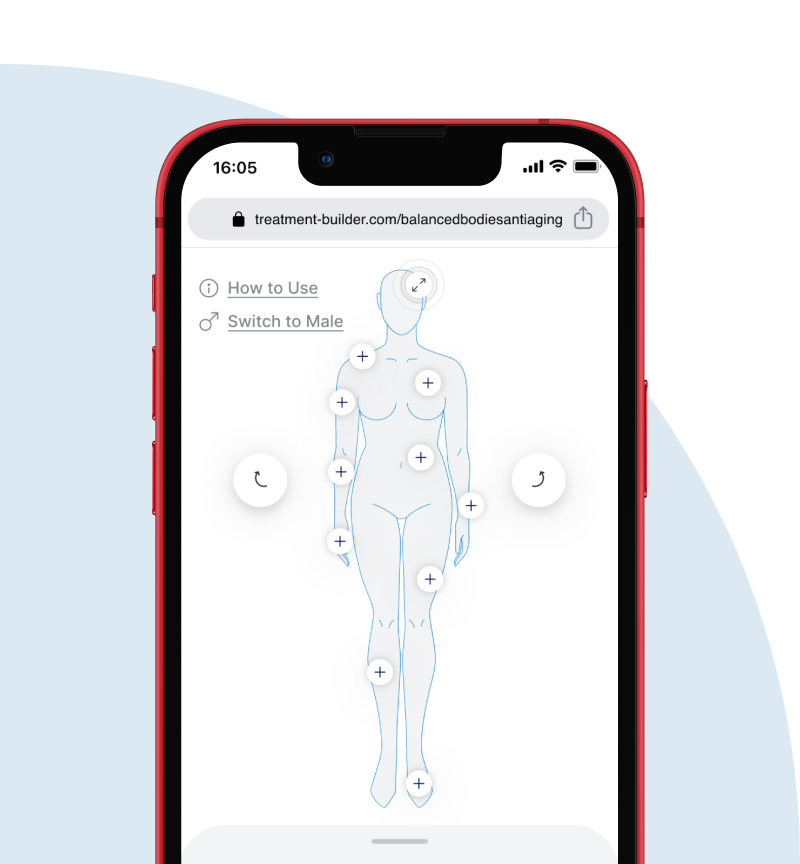
Your body is a machine that is constantly working to maintain your health. However, because your body is continually using resources to keep you healthy and give you energy, there may come a time when your body runs out of necessary micro and macronutrients. Luckily, at Balanced Bodies Anti-Aging Clinic in Sandy Springs, GA, we know that nutrient testing and nutrient therapy can be the key to unlocking your optimal health.
How Does Nutrient Testing Work?
Nutrient testing is performed by measuring blood serum results in a lab. This type of testing is similar to a comprehensive metabolic panel. When you give your blood sample to a lab, lab technicians will assess the level of vitamins and minerals that are currently circulating through your body. This snapshot of your current nutrients will give a general measurement of your nutrient balance., which can be greatly influential for your overall health.
How Often Should You Have These Blood Tests?
The balance of vitamins in minerals in your blood can change very quickly, particularly for water-soluble vitamins. For this reason, if your doctor is recommending nutrient assessment, you may need to have nutrient testing as often as every one to three months. This is particularly true if your doctor has put you on a nutrient therapy to improve a vitamin or mineral deficiency.
Some people may also prefer to have nutrient testing done during an annual checkup, along with other blood work. By testing the nutrients in your blood annually, you can make better daily lifestyle choices so that you can maintain your health.
Why Do Doctors Do Nutrient Testing?
There are a few reasons why a doctor may order a nutrient test of your blood. For example, if you are exhibiting certain symptoms that can’t be explained by common conditions, your doctor may want to take a closer look at the vitamins and minerals in your blood to determine the cause of your disease.
Because balancing the vitamins and minerals and your body is a more conservative approach to maintaining your health, many doctors prefer to test for nutrients before exploring other treatment options.
Identify Nutrient Deficiencies
Many Americans are chronically low in vitamin D, calcium, and even iron. As an overfed but undernourished country, vitamin deficiencies are very common. Deficiencies may be more common in women who are pregnant or menstruating, vegetarians, and those taking certain medications that make it more difficult for the body to absorb nutrients.
It’s important to identify nutrient deficiencies early on, since deficiencies in B12, iron, magnesium, potassium, and other minerals can cause major health concerns. For example, having an iron deficiency can lead to headaches, palpitations, paleness, and other concerning symptoms.
Discover Underlying Causes
Your doctor may also order nutrient tests to discover the underlying causes of certain conditions. For example, if you’re being treated for a condition, but the treatment is not effective, your doctor may order a nutrient test to determine if there is a vitamin or mineral deficiency that also needs to be corrected so that your treatment can improve your condition.
Sometimes, discovering and correcting underlying nutrient deficiencies can be enough to improve your health without needing additional medications. For those who want to take a more holistic approach to their health, this can be an ideal solution.
Assess Nutrient Needs
Finally, if you’re working with your doctor to manage your health, and you are undergoing major weight loss changes, it may be a good idea to assess your nutrient needs. Excessive exercise, dieting, and other lifestyle changes can affect the balance of vitamins and minerals in your body. By assessing your nutrient needs, your doctor can recommend a diet or exercise regimen that will promote better overall health.
How Do Doctors Correct Nutrient Imbalances?
To correct any nutrient imbalance, your doctor may recommend nutrient therapy. There are a few options when it comes to increasing the vitamins and minerals in your blood. For example, your doctor may simply recommend that you start eating more of a certain food group if your vitamin deficiency is relatively minor. Other therapy options can include:
IV Therapy
IV therapy is a good treatment option for those who need to correct major nutrient deficiencies. IV therapy works by infusing the body with higher dosages of vitamins and minerals to achieve specific goals, such as improving mood, energy, or deficiencies.
Vitamin Shots
Vitamin shots are another form of nutrient therapy that can be highly effective. Vitamin shots are highly concentrated doses of specific vitamins and minerals that are designed to be quickly absorbed by the body. One of the most common vitamin shots is vitamin B12, which can be used to stabilize the metabolism, reduce fatigue, and improve musculoskeletal conditions.
Oral Vitamins and Supplements
Your doctor may also recommend oral vitamins and supplements. Before IV therapy or vitamin shots, oral vitamins and supplements may be explored to gradually correct the nutrient deficit you are experiencing.
However, oral vitamins and supplements are often delivered in tablet form, which may be more difficult for your body to break down and absorb. This is one reason your doctor may explore sublingual or liquid vitamins and minerals instead of a multivitamin.
Which Nutrient Therapy Is Right for You?
Selecting the right therapy for you will depend on your preferences, the degree of your vitamin deficiency, and if you have any trouble with malabsorption. For example, your doctor may explore IV therapy if your body is unable to process oral tablets, especially for those who are struggling with iron deficiency or B12 deficiency.
Why Do Liquid Vitamins and Injectable Vitamins Work So Well?
Liquid vitamins and injectable vitamins are typically superior to oral supplements, simply because the body can more readily absorb liquid forms of vitamins and minerals. When the vitamin is injected directly into the blood, it bypasses the digestive system that may destroy the vitamin before it can be absorbed and used by the body.
Additionally, some people who struggle with gastrointestinal difficulties when using oral vitamins and supplements may do better with liquid vitamins. This is because liquid vitamins are typically gentler on the digestive system.
How Often Do You Need Nutrient Treatments?
The frequency of your nutrient treatments will depend directly on the specific therapy we’re using. For example, with vitamin shots, you may only need to have this treatment every two to three months, while IV therapy may be recommended every one to two months. If you are using liquid oral vitamins or tablets, you may need to take these supplements every day or every other day.
How Soon Will You Feel Results?
Correcting a vitamin deficiency can take several weeks or months, depending on the degree of your condition. After IV therapy, many people will be able to feel significant results within a few weeks. Vitamin shots tend to work a bit more quickly, but the results of this treatment also fade more quickly. For oral supplementation, it may take months to build back an adequate store of certain vitamins in minerals, so you may not feel the results for a long time.
Are There Ways to Prolong Your Results?
After you have nutrient therapy, you may be interested in prolonging your results. However, you must be aware that the balance of vitamins and minerals in your body is constantly fluctuating in response to your metabolism, your activity level, and your lifestyle. For this reason, the best way to prolong your results may be to improve your diet and consider a daily multivitamin that is specifically designed for your age and gender.
Improve Your Diet
Improving your diet typically means revising the foods you eat every day to ensure you are getting enough vitamins and minerals in your meals. For the most part, this usually means you will be eating more fruits and vegetables, and fewer carbohydrates. In addition to improving your diet, you may also need to cut back on alcohol, which can impair the absorption of certain vitamins such as B12.
Consider a Multivitamin
Even if you are using IV therapy or vitamin shots, you can still include a multivitamin into your daily regimen. A multivitamin will essentially top up the stores of vitamins and minerals in your body.
It’s important to use a multivitamin that has been designed for your demographic. For example, menstruating women will need to use a multivitamin that includes iron, whereas men should never take a multivitamin that has iron unless they have an iron deficiency.
Improve Your Health and Nutrient Balance
Improving your health can come down to improving the balance of nutrients in your body. By testing the blood serum levels of micro and macronutrients, you can identify deficiencies and explore treatment options that will allow you to reach your peak health. Get in touch with Balanced Bodies Anti-Aging Clinic in Lawrenceville, GA, and Sandy Springs, GA to schedule your initial appointment today.


